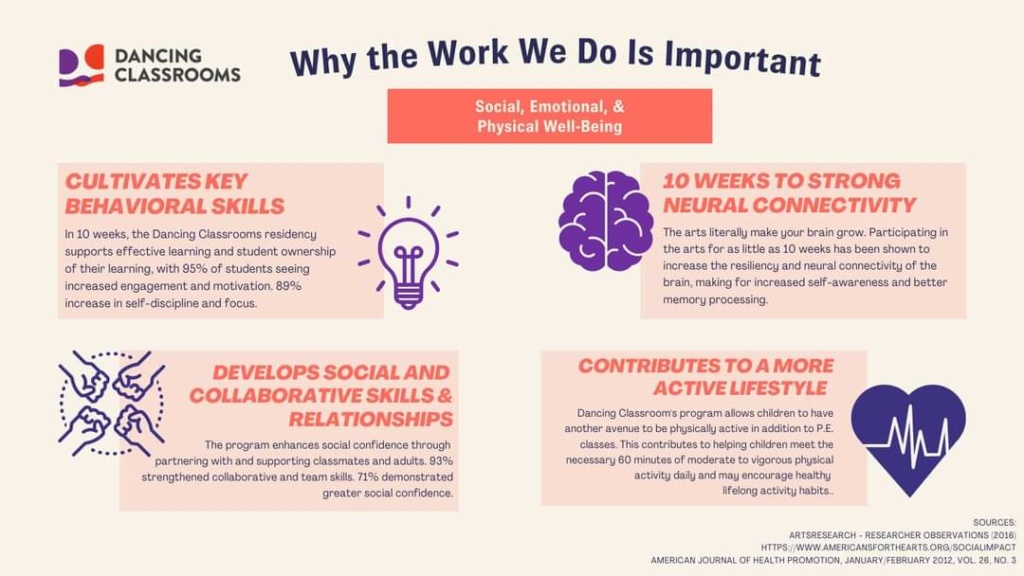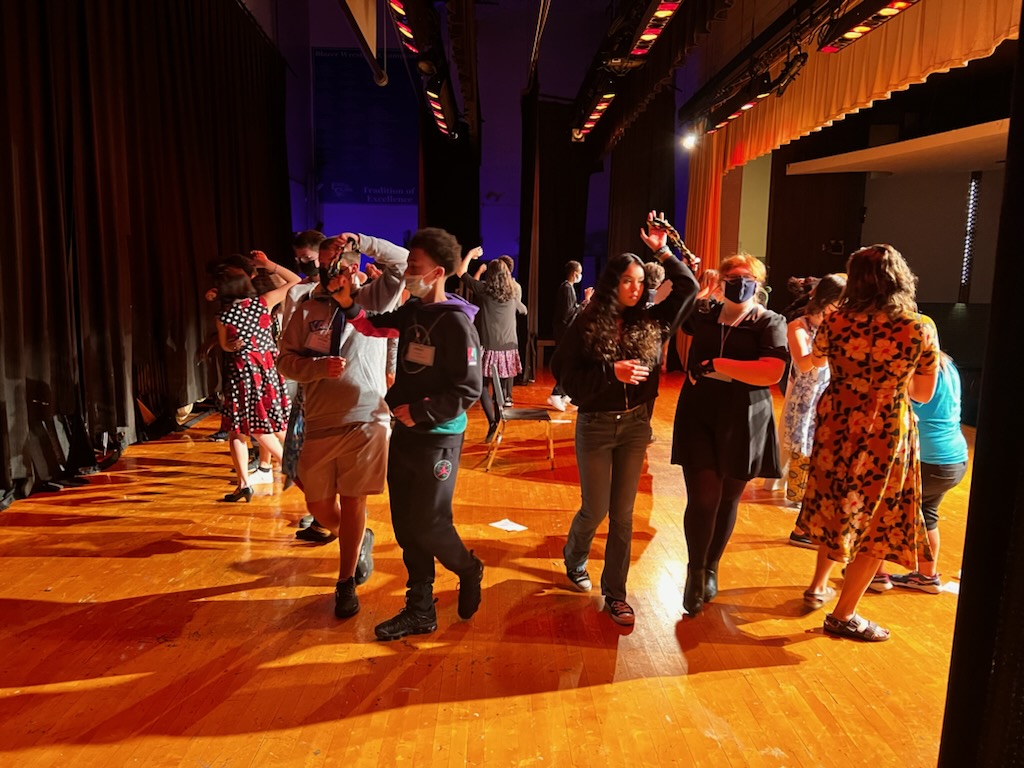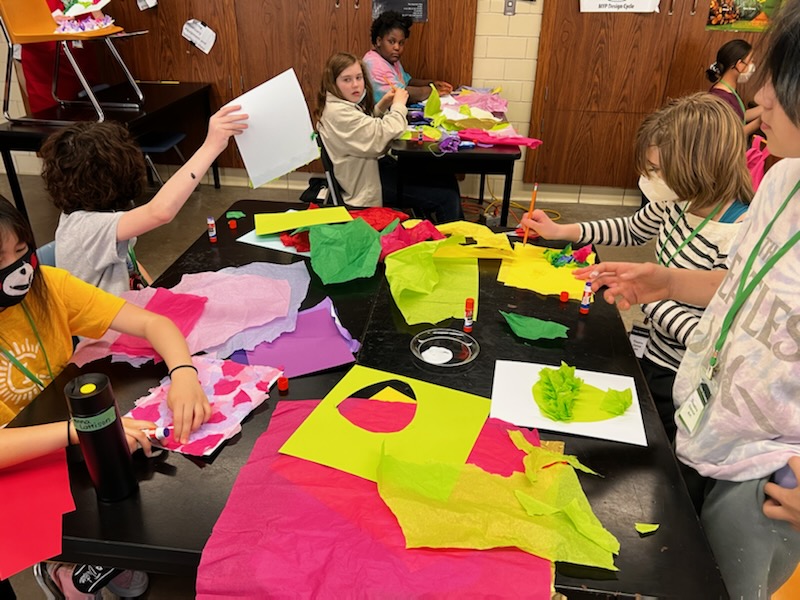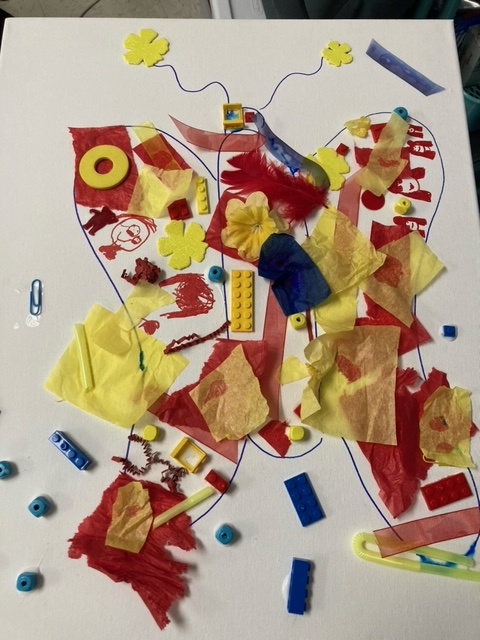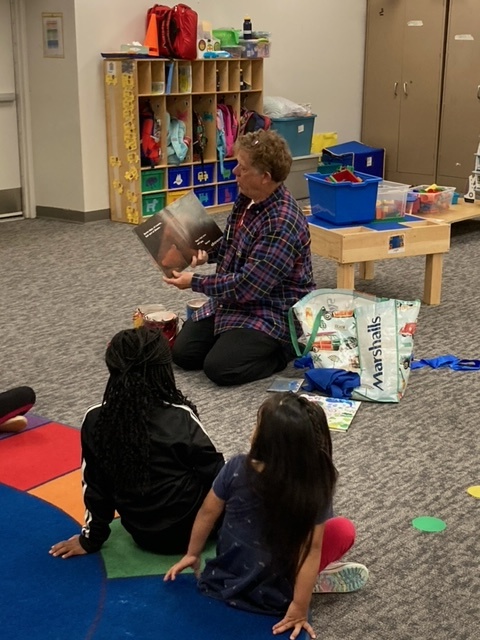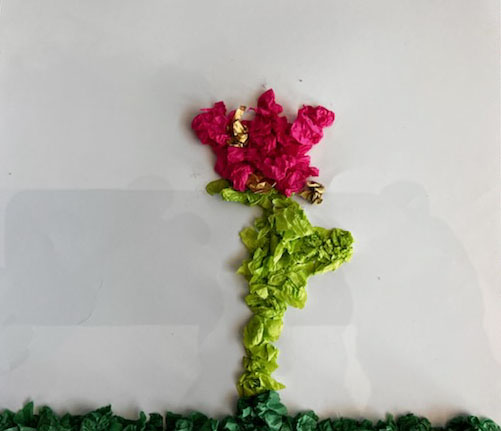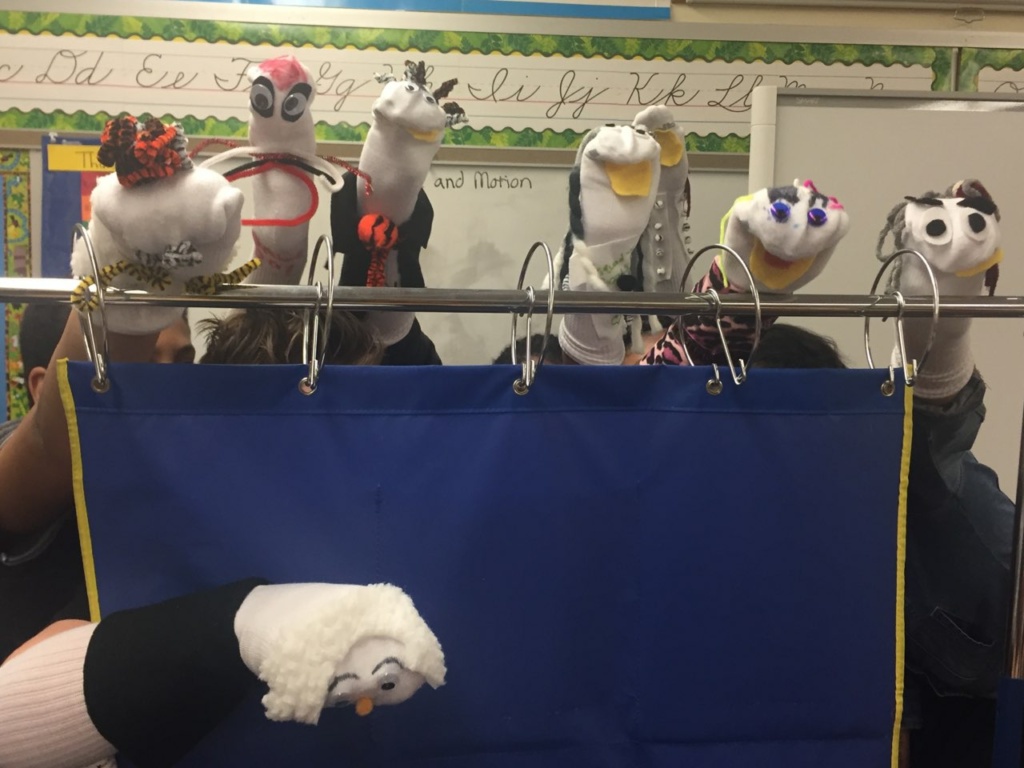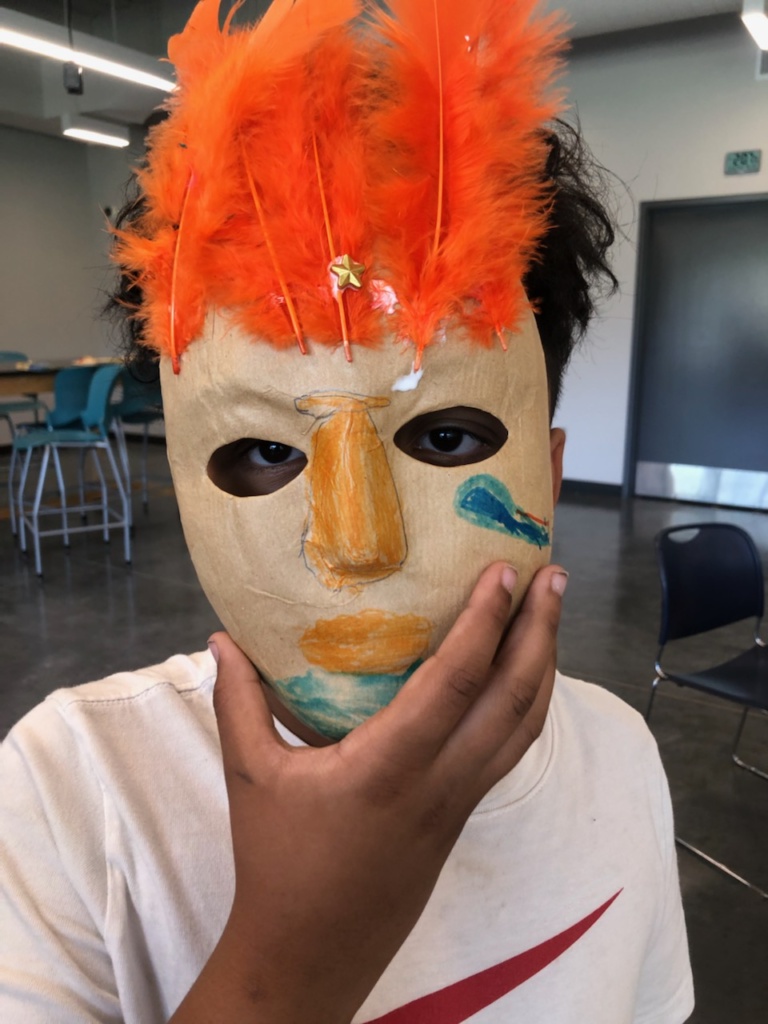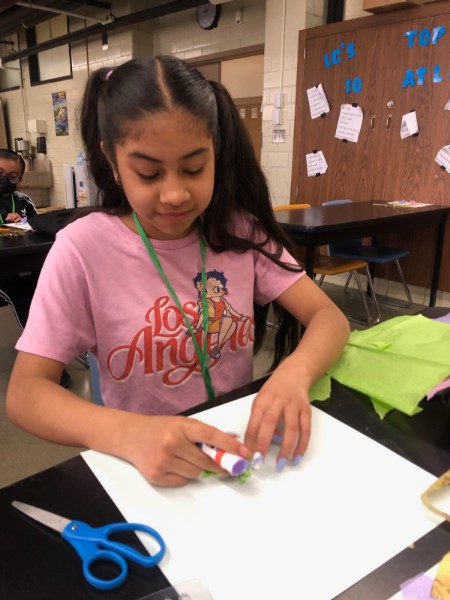
Youth Engagement
Studies show that children who engage with the arts can experience lifelong benefits, including higher attendance and graduation rates, higher median income and lower poverty rates. When you add in the elements of social-emotional learning to arts programming, we have the opportunity to help build a community of lifelong lovers of art who are kinder, more compassionate and understand the value of arts in their lives.
After-School Programming
Our after-school youth programs serve childhood, elementary and middle school students across the metro during the school year. Our teaching artists provide a diverse array of meaningful and engaging creative arts activities during these Out of School-Time hours. These programs reach more than 3,000 students a year and are made possible through funding from The Sherwood Foundation, Collective for Youth and The Jetton Foundation. WhyArts partners with 30+ OPS schools as well as the NorthStar Foundation, Nelson Mandela School, Jesuit Academy, Kids Can, Completely Kids and others.
Dancing Classrooms
Dancing Classrooms, developed in 1994, introduces students to ballroom dance, which they can enjoy throughout life. It’s also a specific method of teaching dance that’s designed to increase social and emotional development through teamwork, mutual respect and discipline among diverse classmates. Instruction occurs in the form of a 10-week residency within the structure of a regular school day. Through the mastery and performance of six basic ballroom dances, students:
- Develop a greater sense of confidence, civility, tolerance and patience within themselves and for each other
- Improve their fitness and coordination as they focus their physical energy on rhythmic movement to music
- Broaden their knowledge of the artistic, cultural, historic and geographic elements of the six dances
In 2006, Omaha became an official Dancing Classrooms location – the first city outside of New York to offer the program. Today, Dancing Classrooms operates in 60 classrooms at 33 schools throughout Omaha, serving more than 2,000 students annually. It is free to the student and is all-inclusive. If requested, students are provided with free dress clothes for the performances.
Our proprietary program develops the best of what academics call Social Emotional Learning or SEL, life skills like motivation, grit, connection and listening that help us relate, interact and advance as respectful, empathetic human beings in a coarsening world.
Year after year, school principals, teachers and families have witnessed the elevated self-esteem, shared experience and engagement of each Dancing Classrooms student that propels enhanced performance in- and out-of-school in the semesters that follow.
Even in a virtual and socially-distanced world, we’ve heard time again that our program results in better student performance and engagement in the classroom and beyond.
Cultivates Key Behavioral Skills
In 10 weeks, the Dancing Classrooms residency supports effective learning and student ownership of their learning, with 95% of students seeing increased engagement and motivation. 89% increase in self-discipline and focus.
10 Weeks to Strong Neural Connectivity
The arts make your brain grow. Participating in the arts for as little as 10 weeks has been shown to increase the resiliency and neural connectivity of the brain, making for increased self-awareness and better memory processing.
Develops Social and Collaborated Skills and Relationships
The program enhances social confidence through partnering with and supporting classmates and adults. 93% strengthened collaborative and team skills. 71% demonstrated greater social confidence.
Contributes to a More Active Lifestyle
Dancing Classroom’s program allows children to have another avenue to be physically active in addition to physical education classes. This contributes to helping children meet the necessary 60 minutes of moderate to vigorous physical activity daily and may encourage healthy lifelong activity habits.
Sources: Artresearch – researcher observations (2016)
americansforthearts.org American Journal of Health Promotion, January/February 2012, Vol 26, No.
WhyArts Saturday Academy
The program is open to students grades 4-12 from our current roster of participating Omaha metropolitan schools and young adults with disabilities. The program consists of three-hour workshops held on six Saturday mornings. It is offered three times per year in the fall, winter, and spring. Classes are held at an accessible partner site bringing together students from all over the district to meet and work as a diverse group.
Saturday Academy involves many activities including visual arts, theatre arts, and movement. Our Saturday Academy strives to help students feel comfortable, gain confidence, and develop positive relationships through social and emotional learning.
Deadline to Register: December 22, 2023
What? Six -week art survey learning experience in visual art | theatre | dance
Cost? Free plus each student receives a set of art supplies and carrying tote!
When? Saturdays, January 13 – February 17, 2024 9:30 a.m. – 12:30 p.m.
Where? Barbara Weitz Community Engagement Center on the University of Nebraska of Omaha campus
6400 University Drive South Omaha, NE 68182 (behind Bell Tower)
Sign up here
For more information on any of our programs, please contact info@whyartsinc.org
- Dancing Classrooms Unified
- After school elementary school
- Early Childhood
- Early Childhood
- After-school Middle School
- Saturday Academy
- Early Childhood
- Summer workshop with Northstar
- Saturday Academy

